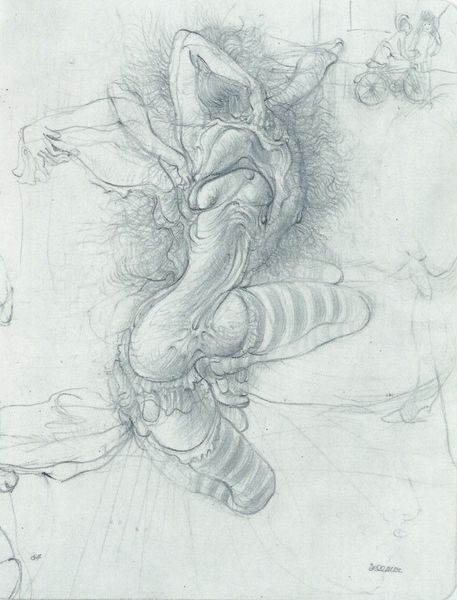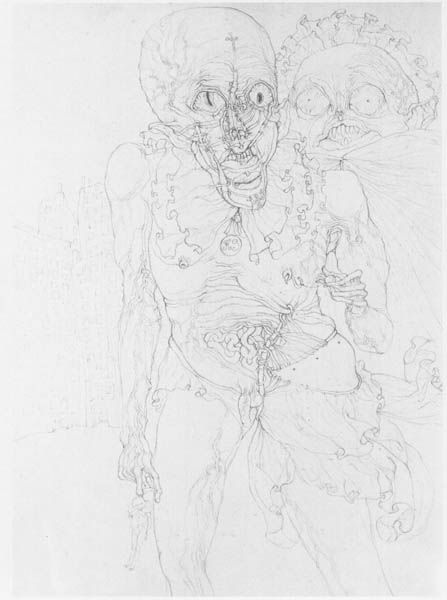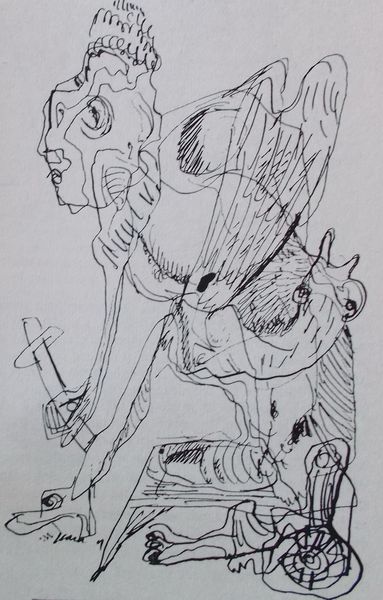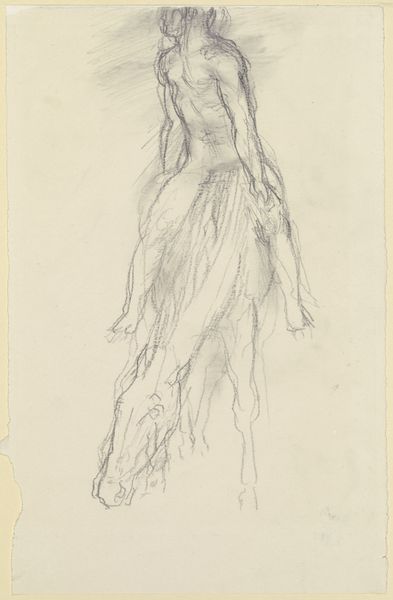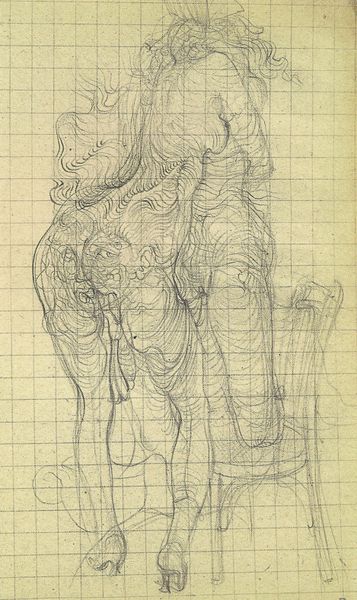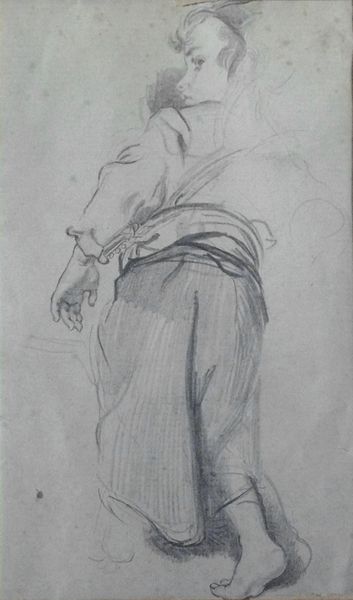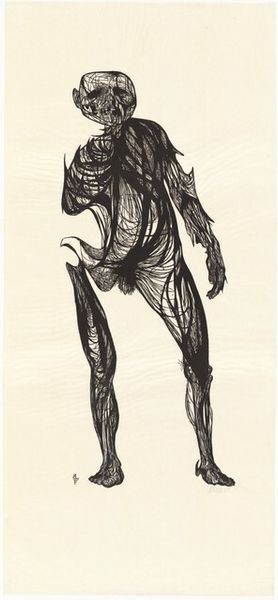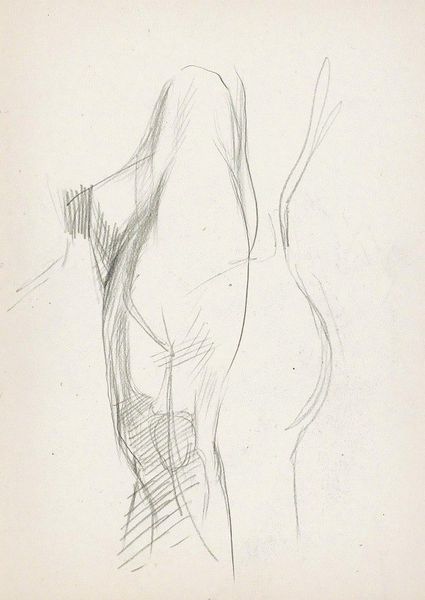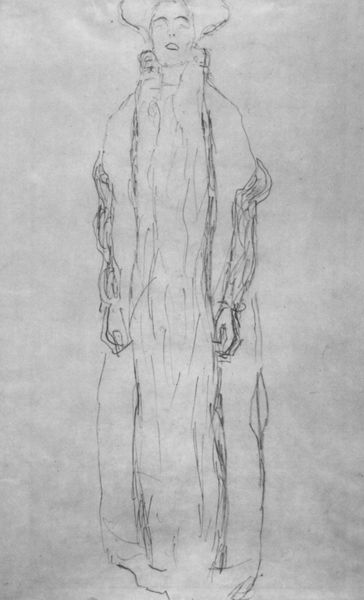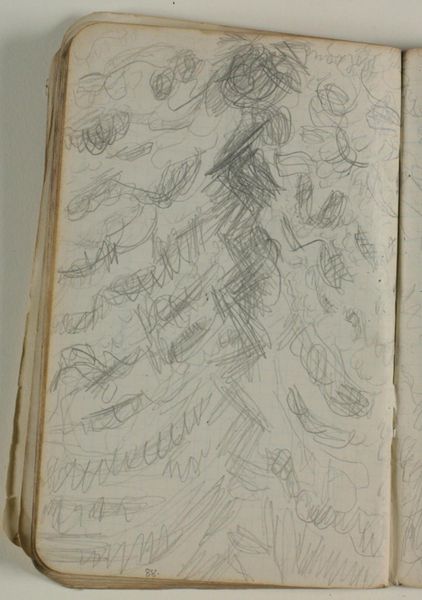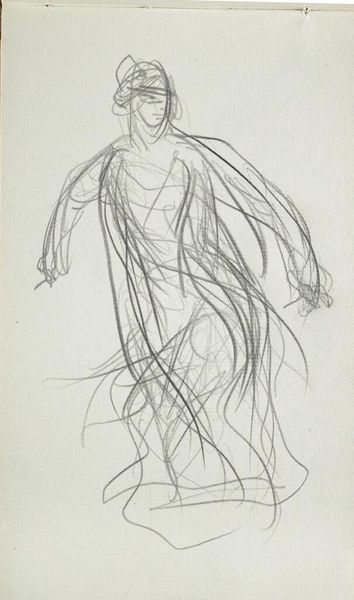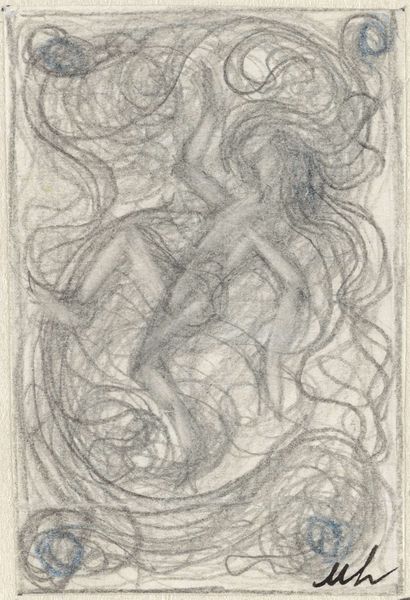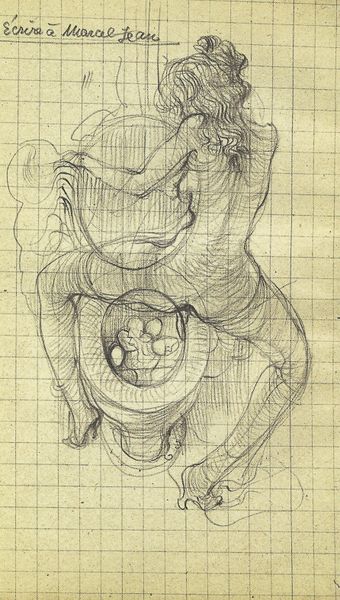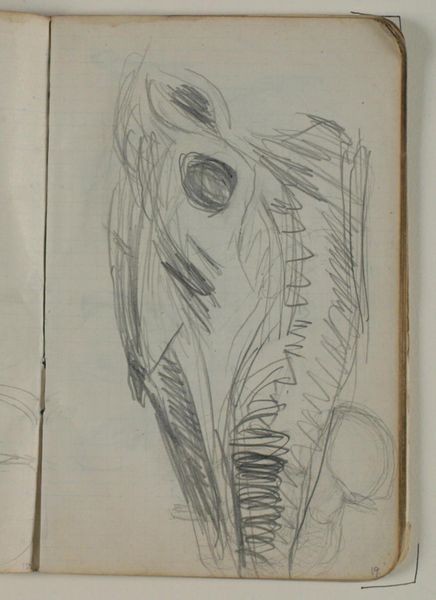
Copyright: Public Domain: Artvee
Editor: We’re looking at "Akt In Geschraubter Bewegung" - "Nude in Screwed Motion"- a pencil drawing by Paul Klee from 1933. It’s incredibly energetic, with lines swirling to create this almost frantic, dynamic form. How do you interpret this work? Curator: Well, placed in its historical context, 1933, the year the Nazi party seized power in Germany, we must see it through that lens. Klee was later dismissed from his teaching post and declared a “degenerate artist.” Doesn't this frantic energy feel like a body being contorted and strained by societal pressures? Are we seeing the inner turmoil of a man sensing the world turning upside down? Editor: That’s a powerful reading. I was initially struck by the aesthetic of the drawing itself - the way the lines create a sense of movement, but the historical context you bring up really does shift how one perceives it. Curator: Consider the figure's gaze, tilted upwards, almost pleading. This work resists the objectification inherent in many nudes by emphasizing the sitter’s emotional state. How does the visible construction – the layering of lines, the unfinished quality – contribute to your understanding? Editor: It makes the figure feel vulnerable, like a sketch caught in progress, unfinished, exposed. Not idealized or perfected. It's like seeing a person stripped bare, both physically and emotionally. Curator: Exactly! Klee uses the rawness of the medium to lay bare not just the body, but the anxieties of a changing world. This intersection of personal struggle and socio-political upheaval defines its power. Editor: It’s amazing how much history and emotion can be conveyed through something that appears, on the surface, like a simple sketch. It encourages me to really think about the cultural context that the piece was born from. Curator: Absolutely. Art speaks through the ages, always in dialogue with its present, our present, and all that lies between.
Comments
No comments
Be the first to comment and join the conversation on the ultimate creative platform.
